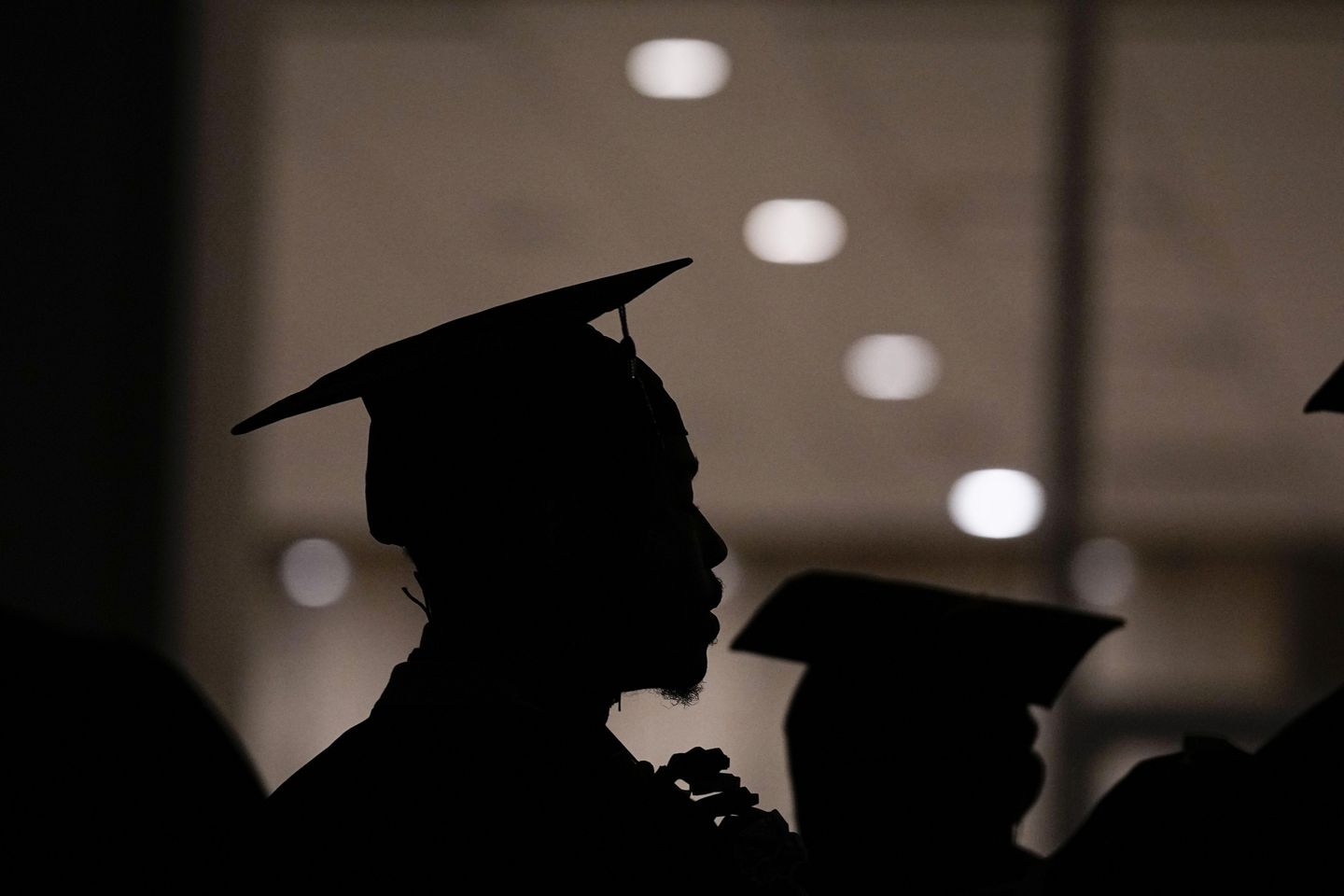
The number of college degree earners fell for the third straight year after inching upward for seven years, the National Student Clearinghouse Research Center reported Thursday.
The education nonprofit found the tally of four-year bachelor’s degrees granted in the 2023-24 academic year dropped by 24,631 to 1.9 million, the lowest level since 2015-16. The count of two-year associate’s degrees awarded declined by 7,862 to 821,445, a 10-year low.
On the positive side, the estimate of students earning short-term certificates for skilled trades and technology jobs increased for the third consecutive year. The clearinghouse said 52,961 more students earned these microcredentials in 2023-24 than the year before, pushing the total to a 10-year high of 525,215.
Typically requiring three to nine classes, and far less costly than two-year and four-year degrees, professional certificate programs include topics such as accounting and computer programming and trades such as machine repair.
“This report provides yet more evidence that today’s students want shorter-term, lower-cost credentials that lead to faster employment opportunities,” said Doug Shapiro, executive director of the research center. “It is certificate programs, not associate or bachelor’s degrees, that are drawing students into colleges today.”
The clearinghouse offers the only national estimates of these numbers each year.
Among the more than 3.2 million undergraduates who received microcredentials last year, first-time certificate earners surged by 12.6%, or 41,500 students, from 2022-23, according to the report.
That surge offset the decline in degree earners and drove up the overall number of credential earners by 0.6%, or 20,500 students, over the same period.
The report comes as rising costs, declining enrollments and funding cuts have forced a growing number of second-tier private colleges to close and public campuses to merge since the pandemic.
Families have increasingly questioned the value of amassing six figures of federal student loan debt to attend four-year programs as college costs soar and fewer jobs require degrees.
Georgetown University’s Edunomics Lab estimates that 5.8 million of the 18.5 million annual job openings expected nationwide through 2031 — 31% — won’t require four-year degrees.
As more high school graduates earn certificates, fewer have applied for regional state colleges and private liberal arts schools. Meanwhile, top-tier universities with large endowments have continued to scoop up the best students.
Gary Stocker, a former university administrator who founded College Viability to evaluate campuses’ financial sustainability, said the latest clearinghouse numbers confirm a trend of “fewer students starting and fewer students finishing” two-year and four-year degrees.
“There continues to be excess capacity throughout higher ed,” said Mr. Stocker, who was not involved in the report. “Until the supply and demand balance moves toward some semblance of equilibrium, there will be no letup in these downward trends across the industry.”
The clearinghouse reported Thursday that roughly 1 in 7 undergraduates earned a certificate as their highest degree last year, up from 1 in 9 a decade earlier.
Challenging a longtime trend of undergraduates skewing younger than trade school applicants, the report also found that 2023-24 marked the first time certificate earners younger than 25 outnumbered those 25 and older. Certificate completers ages 18-20 grew by nearly 20,000, and those under 18, primarily high school students dual-enrolled in college courses, grew by over 7,000 from 2022-23.
Steve Durham, a member of the Colorado State Board of Education, said these figures reflect “a healthy trend” as the nation grapples with labor shortages in skilled trades and data analysis jobs.
“The return on investment of a four-year college degree continues to fall while the value of certificates and trades increases,” said Mr. Durham, a former Republican state lawmaker. “I think students are making wise choices not to carry a lot of debt from a four-year degree and earn a skill that will pay big dividends for them.”












